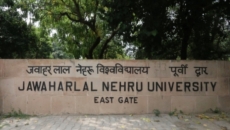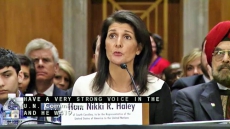The UK authorities have also linked the classified information in the documents with wider national security concerns and claimed that extracting any portions of it to make public would cross the cabinet office's red lines.
The UK authorities on Thursday said the release of classified documents dating back to the period of Operation Blue Star in 1984 could prejudice international relations with India due to the political sensitivity of the subject.
As a hearing seeking the declassification of files that are believed to contain information on Britain's involvement in the Indian military operation at Golden Temple in Amritsar concluded in London today, the counsel for the cabinet office said India attaches particular sensitivity to the issue of "Sikh separatism", which is perceived as a threat to the very existence of the Indian state.
"Just the passage of time does not diminish the significance of this case, said the counsel for the Cabinet Office.
The UK authorities have also linked the classified information in the documents with wider national security concerns and claimed that extracting any portions of it to make public would cross the cabinet office's red lines.
The UK Information Commissioner s Office (ICO), another party in the hearing, questioned the impact on UK-India relations with the release of the documents saying India is a country governed by the rule of law, with a "sophisticated democracy" and there should be no reason to presume that it would not respect the UK's need to follow the rule of law.
As part of her closing submissions, UK-based freelance journalist Phil Miller's counsel arguing in favour of the files being made public as part of a Freedom of Information (FOI) stressed on wide public interest in the case and concluded that it was not simply about seeking a "smoking gun" in terms of UK-India bilateral relations in the 1980s.
"The documents may well allay concerns and help reassure the Sikh community. So there could be good news in no bad news, said Mr Miller's counsel.

The judge at the first tier tribunal hearing, Murray Shanks, reserved judgment in the case, which is expected later this year.
Mr Miller's FOI request revolves around the need to establish if trade and arms deals were a factor in the assistance offered to India by the then Margaret Thatcher led government.
He also believes that as the then ruling Congress party is no longer in charge, the present BJP-led government in India would welcome the release of the files in the interests of transparency.
During his evidence in open session, Owen Jenkins, former FCO Director for South Asia and Afghanistan, had revealed that there had been no consultation with the Indian government on the issue of the release of the classified files in question.
Indian High Commission sources said the matter was for the British government to decide on and that the Indian government did not have a stand for or against the declassification of the files.
This remains a highly sensitive issue and release of the information could have a detrimental effect on our relationship with India, said Jenkins, who gave much of his evidence in closed session due to the sensitivity of the material which they said could cause risk of damage to international relations.
Mr Miller had come across information that British military advice was given to Indian forces prior to Operation Blue Star during unrelated research in the UK's National Archives in 2014.
The then British Prime Minister, David Cameron, had immediately ordered a review into this discovery, which led to a statement in Parliament declaring that Britain s role had been purely advisory and the Special Air Service (SAS) advice had limited impact on the military operation at the Sikh holy shrine in June 1984.





